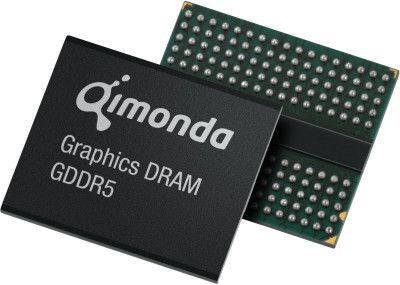From our front-page news:
I posted yesterday about AMD's decision to use GDDR5 chips with their upcoming Radeon 4000-series, and from what it seems, NVIDIA doesn't share the same ambition that they do. At the Nanotech: The Circuits Blog... blog, a quote from NVIDIA doesn't discredit GDDR5 at all, but they note there isn't a need for it right now.
Barry Wagner says, "We aren't particularly attached to any given interface technology", although both their current generation and next-generation (GTX 200) both use GDDR3. He goes on to note that they'd adopt it if it made sense for their business, which at this point doesn't seem to be the case.
The true benefits of GDDR5 might not be seen with gaming, at least until incredibly memory-intensive games come out, but AMD's keen to improve upon stream processing and parallel calculations (along with NVIDIA), and they feel the improved bandwidth of GDDR5 would be beneficial there. The same goes for DDR3 in the desktop market, but for those who own such memory, they likely know just how specific an application needs to be to fully exploit it, and nothing will be different on the GPU.
<table align="center"><tbody><tr><td>

</td></tr></tbody></table>
Nvidia is supporting the technology but taking a more cautious approach. The Santa Clara, Calif.-based graphics chipmaker holds a vice chair position in the GDDR5 task group, said Barry Wagner, director of technical marketing at Nvidia. "We're involved in the specification of GDDR5 so if we want to build products around it, at least the spec is architected in a way that we would be content with," Wagner said.
Source: Nanotech: The Circuits Blog
Barry Wagner says, "We aren't particularly attached to any given interface technology", although both their current generation and next-generation (GTX 200) both use GDDR3. He goes on to note that they'd adopt it if it made sense for their business, which at this point doesn't seem to be the case.
The true benefits of GDDR5 might not be seen with gaming, at least until incredibly memory-intensive games come out, but AMD's keen to improve upon stream processing and parallel calculations (along with NVIDIA), and they feel the improved bandwidth of GDDR5 would be beneficial there. The same goes for DDR3 in the desktop market, but for those who own such memory, they likely know just how specific an application needs to be to fully exploit it, and nothing will be different on the GPU.
<table align="center"><tbody><tr><td>

</td></tr></tbody></table>
Nvidia is supporting the technology but taking a more cautious approach. The Santa Clara, Calif.-based graphics chipmaker holds a vice chair position in the GDDR5 task group, said Barry Wagner, director of technical marketing at Nvidia. "We're involved in the specification of GDDR5 so if we want to build products around it, at least the spec is architected in a way that we would be content with," Wagner said.
Source: Nanotech: The Circuits Blog
